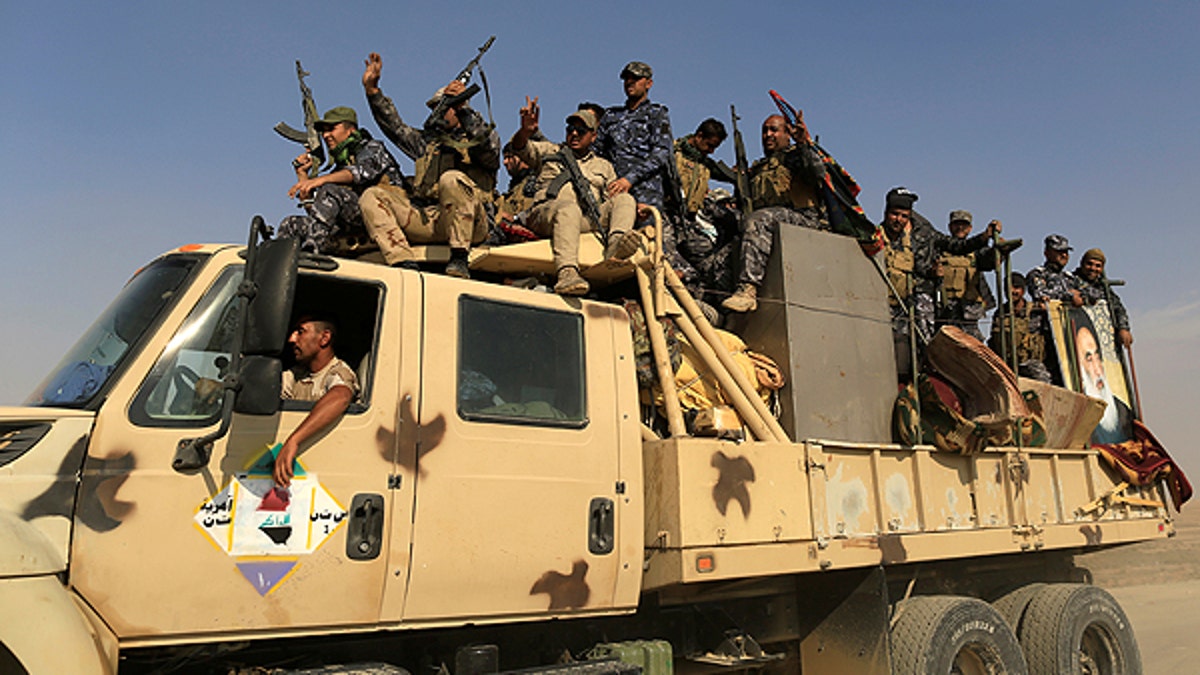
Newly trained police formed from people displaced by Islamic State militants sit on a truck bound for the frontline of the Mosul offensive against Islamic State, near Bazgirtan, Iraq, October 26, 2016. REUTERS/Zohra Bensemra - RTX2QIET (Reuters)
The early stages of the campaign to liberate Mosul are revealing exactly why it took so long to seize the city from the bloody grip of ISIS.
Just over a year ago, Iraqi President Fuad Masum said the effort to reclaim the nation's second-largest city and the surrounding Nineveh Plain from ISIS would take place sometime during 2016. But he noted the need to address issues like troop training, coordination of various ethnic groups, militias and international forces.
The success or failure of the operation will show if those obstacles were overcome.
“It’s really a complex scenario,” Scott Stewart, vice president of Tactical Analysis at global intelligence firm Stratfor, told FoxNews.com. “A lot of it was due to training and to get them [coalition forces] ready.”
Stewart adds that the campaign to take Mosul has been difficult thus far because of the massive size of the city and its infrastructure.
“It’s going to be difficult,” he said. “The sheer size of city. It’s really Iraq’s second city. They have a lot of infestation. The question is, ‘are they [ISIS] going to flee or are they going to hold on because of the meaning of Mosul?’”
The U.S. played a role in the long delay, as well, according to some experts.
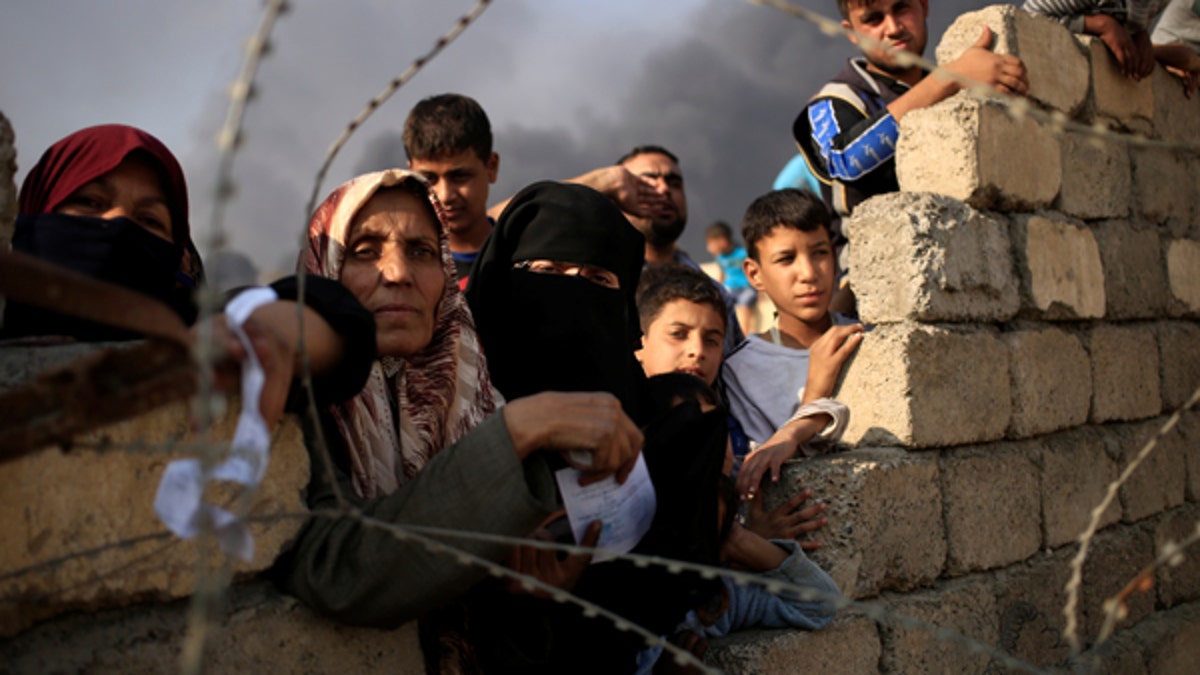
Newly displaced people wait as they complain about what they say is a lack of humanitarian aid outside the processing center in Qayyara, south of Mosul, Iraq. (REUTERS/Zohra Bensemra)
“The delay in liberating Mosul was almost entirely a function of the Obama administration’s ‘light footprint’ approach to the conflict,” said John Hannah, senior counselor at Foundation for Defense of Democracies and former national security adviser to U.S. Vice President Dick Cheney. “His strategy — the Obama Doctrine, if you will — is premised on having local partners do the bulk of the fighting, with the U.S. supporting from behind in very small numbers. The problem in Iraq, of course, was that the local partner that we’re depending on, the Iraqi Security Forces, largely collapsed in 2014 in the face of the Islamic State’s invasion."
The Iraqi military had to be rebuilt, equipped and trained. Compounding matters is the fact that Mosul, the jihadist army's Iraqi capital, is not like other, smaller cities liberated over the last two years.
“While elements of the Iraqi Army have gradually been able to evict ISIS from Iraq's smaller towns and cities, the challenge of liberating Mosul was of a whole different order of magnitude,” Hannah said. “It’s a vast metropolis that had millions of inhabitants, enormous sectarian and ethnic complexity, and was the historical bastion of Sunni [Muslim] revanchism in Iraq. The fight was always going to be toughest in Mosul, which is why it was left for last.”
As forces still fight to liberate Mosul, the Peshmerga, Iraqi Special Forces and the Nineveh Protection Units have made considerable strides throughout the region, reclaiming smaller cities that surround Mosul throughout the Nineveh Plain.
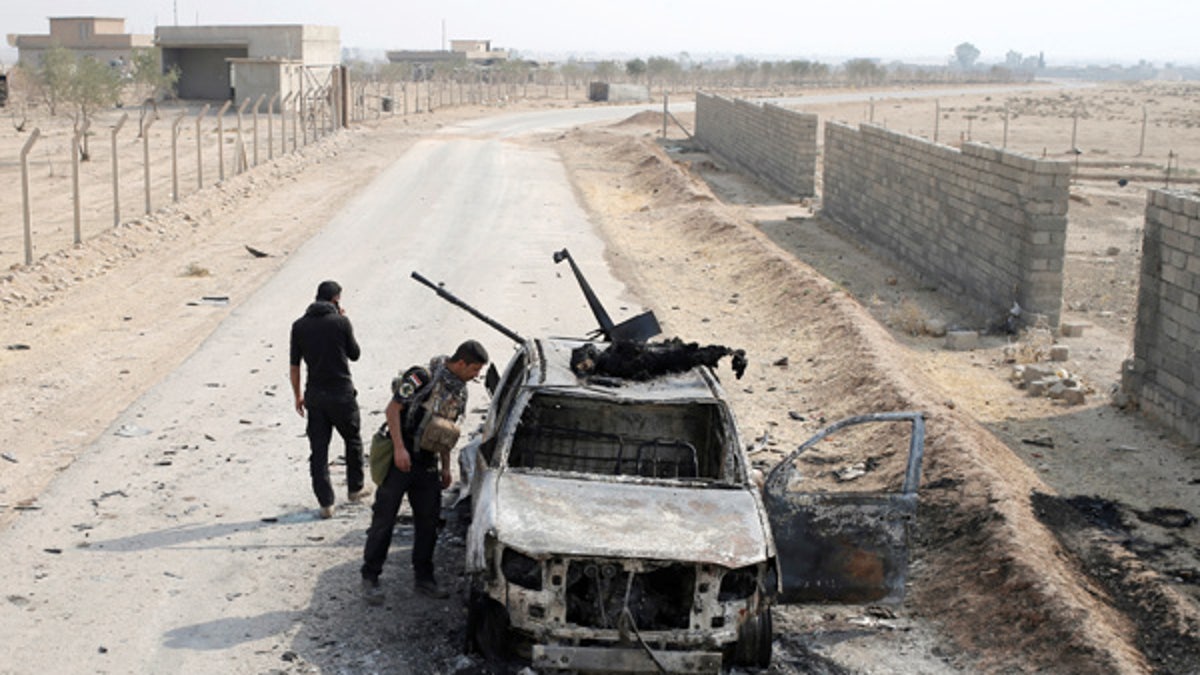
Iraqi Special Forces soldiers looks at a destroyed Islamic State vehicle in a village near Mosul, Iraq. (REUTERS/Goran Tomasevic)
Also known as the plains of Mosul, this region of Northern Iraq has been the ancestral homeland of Assyrian-Chaldean-Syriac Christians, Yazidis and other minorities -- all of whom were under attack from ISIS once the terror group started to take hold and control the region in 2014.
It has been estimated that a dozen Christian families flee Iraq each day, often for the relative safety of Europe and Lebanon. Some are already planning to return, and rebuild their homes once ISIS is gone.
“The area was decimated,” Juliana Taimoorazy, founder and president of the Iraqi Christian Relief Council and senior fellow with the Philos Project, told FoxNews.com. “A sense of family and community has been destroyed. We must embrace these people as the work to rebuild begins.”
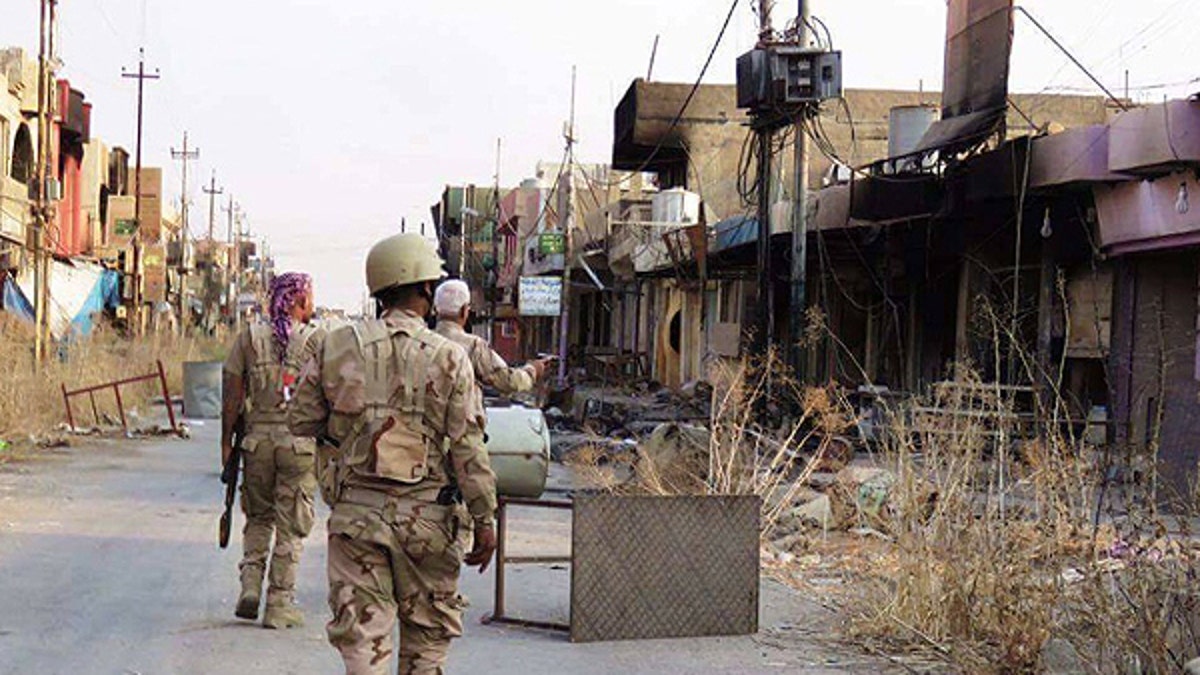
Soldiers from the Nineveh Plain Protection Unit search the recently reclaimed village Qaraqosh, located about 20 miles south of Mosul. (NPU)
Another issue that could delay stabilization of the region is who the territory would be governed by -- the Iraqi Central Government or semi-independent Kurdistan.
“The biggest problem right now is the status of the Nineveh Plain as a disputed territory between the Iraqi Central Government and the regional government of Kurdistan,” said Robert Nicholson, executive director of the Philos Project.
Nicholson and other have made for a push to create a new self-governing province on the plain.
“If this dispute continues unresolved or, worse, if the parties try to establish facts on the ground -- as the Kurdish Peshmerga appear to be doing -- the minorities will have no chance.”
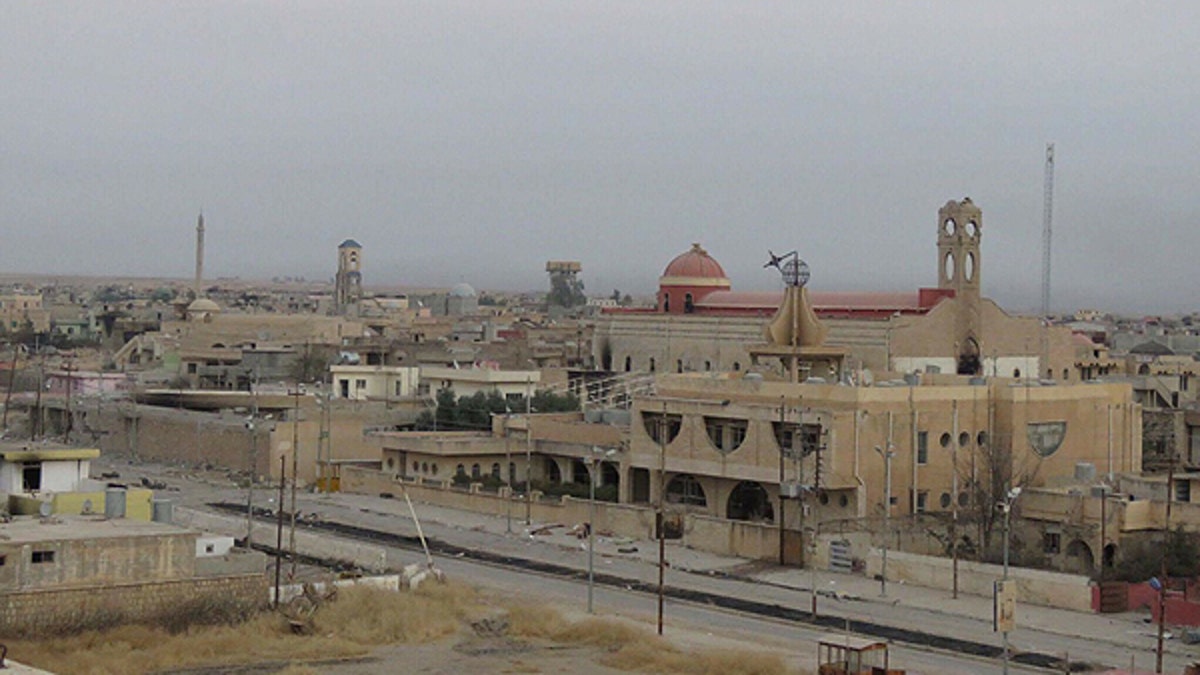
The Church of the Immaculate in Qaraqosh—a city where many Assyrian Christians resided before ISIS forces drove them out. (NPU)
